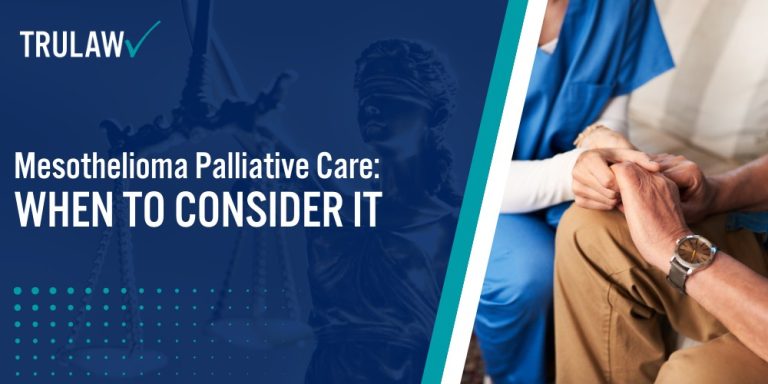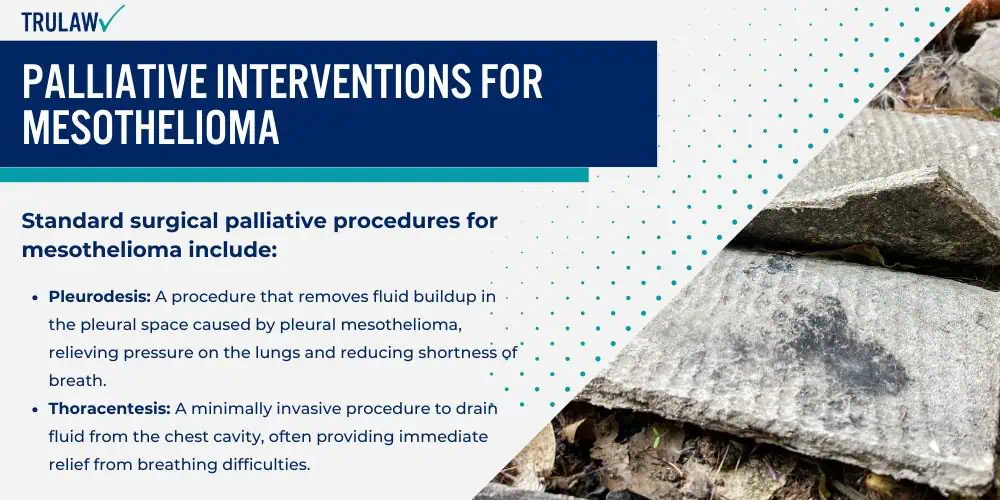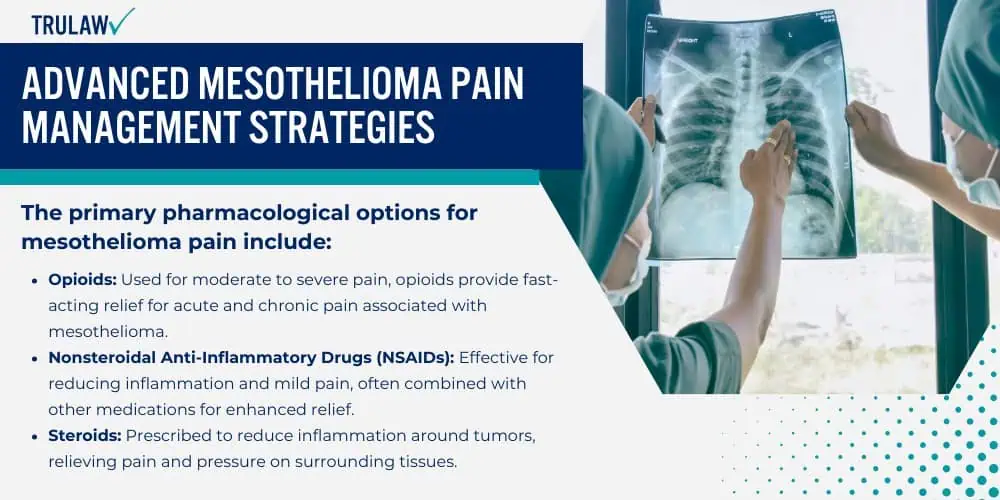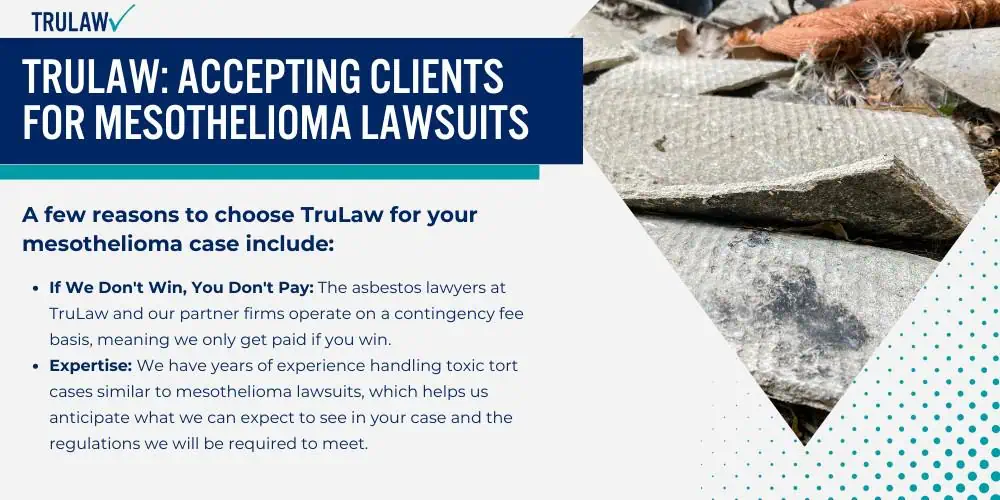Palliative care enhances comfort by managing physical and emotional symptoms throughout malignant mesothelioma treatment.
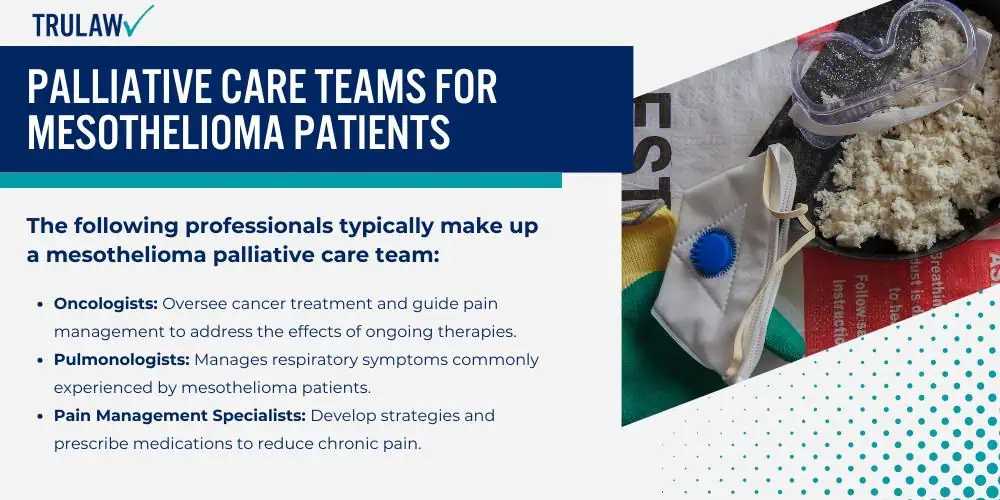
Multidisciplinary Approach to Palliative Treatment
An interdisciplinary approach to palliative treatment for mesothelioma brings together palliative care specialists who address the needs of these patients.
This team-based strategy ensures that physical, emotional, and psychological symptoms are managed thoroughly.
The following professionals typically make up a mesothelioma palliative care team:
- Oncologists: Oversee cancer treatment and guide pain management to address the effects of ongoing therapies.
- Pulmonologists: Manages respiratory symptoms commonly experienced by mesothelioma patients.
- Pain Management Specialists: Develop strategies and prescribe medications to reduce chronic pain.
- Psychologists and Social Workers: Provide support for emotional and mental health challenges, such as anxiety and depression.
- Dietitians: Offers nutritional guidance to help patients maintain their strength and health during treatment.
This team structure enables a tailored care plan considering each patient’s symptoms, preferences, and goals.
Differences Between Palliative Therapy and Hospice Care
Palliative therapy and hospice care differ significantly in their goals and timing.
Palliative therapy is available at any point after a mesothelioma diagnosis, working alongside treatments to manage symptoms and improve comfort.
In contrast, hospice care is reserved for patients who have decided to discontinue curative treatments to focus solely on comfort during the final stages of life.
Here are the main differences between palliative therapy and hospice care:
- Timing: Palliative therapy may start at diagnosis and proceed alongside treatments, while hospice care begins when curative treatments cease.
- Goal: Palliative therapy supports symptom relief alongside treatment, while hospice prioritizes end-of-life comfort exclusively.
- Eligibility: Palliative therapy is accessible at any stage; hospice is generally for patients with a life expectancy of six months or less.
- Treatment Continuation: Patients receiving palliative therapy may continue curative treatments, whereas hospice care does not involve active cancer treatments.
- Focus: Palliative therapy integrates symptom relief with ongoing care; hospice centers entirely on improving the patient’s quality of life in the final months.
Recognizing these differences enables patients and families to make well-informed decisions based on their personal goals and care preferences.
Each option supports patient comfort but provides distinct types of care based on the patient’s current treatment journey and individual needs.
